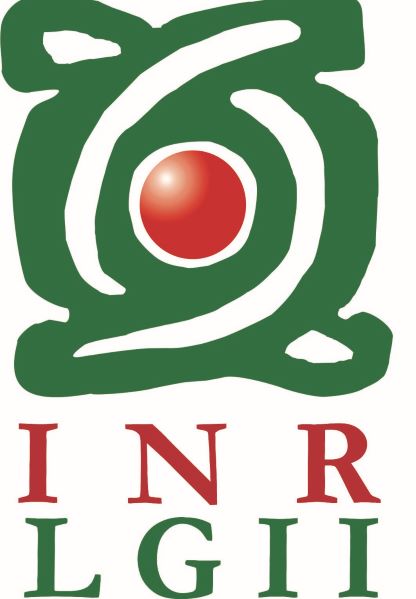Life experiences of a person with a motor disability in their trajectory through coexisting health care models
DOI:
https://doi.org/10.35366/121456Keywords:
Disability, trajectory of care, experience, disease, medical anthropologyAbstract
Introduction: Medical anthropology, in order to understand how people experience illlness and disability, assumes that they acquire a variety of experiences when interacting with the hegemonic medical model, the subordinate alternative model and the self care. These models are seemingly disconnected from each other but they are interconnected in practice, generate concepts about care, illness, disability and ways to deal with it. Objective: Analyze the trajectories and life experiences within the interactions of healthcare models, as described by a person with a motor disability caused by cáncer. Materials and methods; A 42 year old woman (Emma) was selected using judgmental sampling for the richness of her life experiences as a multi-treated “patient” and the trajectories followed in her interacion with care models. Through two semistructured interviews and their transcription, a topic matrix (illness, care, disability) was created to construct and retrospectively analyze the narrative of her trajectories, focusing primarily on her experiencies. Results: Emma acquired knowledge about her illness and critically evaluated the ralative effectiveness of each model and, a the same time, their effects on her person and her sense of life. Conclusions: It is important to know people´s experiencies, their trajectories through the healthcare system, and their expectations; this can help healthcare providers improve the quality and the warmth of the attention.
Publication Facts
Reviewer profiles N/A
Author statements
Indexed in
- Academic society
- N/A
References
Angeles O. La discapacidad ¿referente de un déficit o de diversidad? Revista Tramas. 2020; 54:249-273.
Campos R. Introducción. En: Campos R. Compilador. La antropología médica en México. Tomo 1. México, Instituto Mora, UAM, Antologías Universitarias; 1992. p. 7-32.
Menéndez E. Cuestiones metodológicas sobre antropología e interculturalidad. En: Campos R. Compilador. Antropología médica e interculturalidad. México: Mac Graw Hill. UNAM, PUIC; 2016. p. 1-12.
Kleinman A. The Illness narratives. Nueva York: Basic Book; 1988.
Menéndez, E. La enfermedad y la curación ¿Qué es la medicina tradicional? Alteridades; 1994, 4(7):71-83.
Fabrega H. The study of disease in relation to culture. Behavioral Science. 1972, 17(2):183-203.
Mercado F, Robles L, Ramos I, et al. La perspectiva de los sujetos enfermos. Reflexiones sobre pasado, presente y futuro de la experiencia del padecimiento crónico. Cad. Saúde Pública. 1999; 15(1):179-186.
McKercher JP, Slade SC, Jazayeri JA, Hodge A, Knight M, Green J, Woods J, Thwaites C, Morris ME. Patient experiences of codesigned rehabilitation interventions in hospitals: a rapid review. BMJ Open. 2022 Nov 4;12(11):e068241. doi: 10.1136/bmjopen-2022-068241
Wolf JA, Niederhauser V, Marshburn D, LaVela SL. Defining Patient Experience. Patient Experience Journal. 2014; 1(1):7-19. doi: 10.35680/2372-0247.1004
Osorio RM. Entender y atender la enfermedad. Los saberes maternos frente a los padecimientos infantiles. México: Instituto Nacional Indigenista/Centro de Investigaciones y Estudios Superiores en Antropología Social; 2001.
Menéndez E. Modelo hegemónico, modelo alternativo subordinado, modelo de autoatención. Caracteres estructurales. En: Campos R. Compilador. La antropología médica en México. Tomo 1. México: Instituto Mora, UAM, Antologías Universitarias; 1992. p. 97-114.
Arganis EN. La autoatención en un grupo de ancianos con diabetes mellitus residentes en Iztapalapa. Cuicuilco. 2005; 12(33):11-25.
Merleau-Ponty M. Fenomenología de la percepción. España: Planeta-Agostini; 1993.
Álvarez-Gayou JL. Cómo hacer investigación cualitativa. Fundamentos y metodología. México: Paidós Educador; 2014.
Rodríguez AM. La narrativa como método para la construcción y expresión del conocimiento en la investigación didáctica. Sophia. 2020; 16(2):183-195. doi: https://doi.org/10.18634/sophiaj.16v.2i.965
González J. Etnografía narrativa: la aproximación a la clínica desde las interacciones sociales. Dimensión Antropológica. 2021; 28(81):90-110.
Hamui L. Las narrativas del padecer: una ventana a la realidad social. Cuicuilco. 2011; 18(52):51-70.
León SR. Ciencias sociales, prácticas y formación del médico general. IPN, Ciencia, Arte: cultura. 1997. p. 50-58.
Bolstansky L. Los usos sociales del cuerpo. Buenos Aires: Periférica; 1975.
Lain Entralgo P. La medicina actual. Barcelona: Orbis Ediciones; 1986.
Foucault M. El nacimiento de la clínica. México: Siglo XXI editores; 2020.
Coetzee J.M. Hombre lento. México: Debolsillo; 2016.
Downloads
Published
How to Cite
Issue
Section
License
Copyright (c) 2025 Instituto Nacional de Rehabilitación Luis Guillermo Ibarra Ibarra

This work is licensed under a Creative Commons Attribution 4.0 International License.
© Instituto Nacional de Rehabilitación Luis Guillermo Ibarra Ibarra under a Creative Commons Attribution 4.0 International (CC BY 4.0) license which allows to reproduce and modify the content if appropiate recognition to the original source is given.




